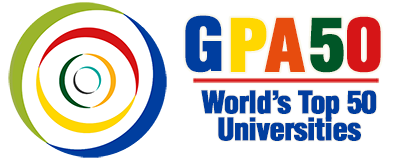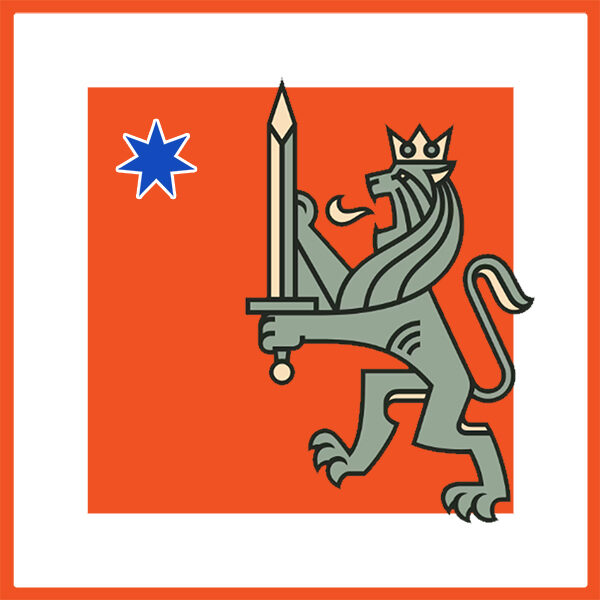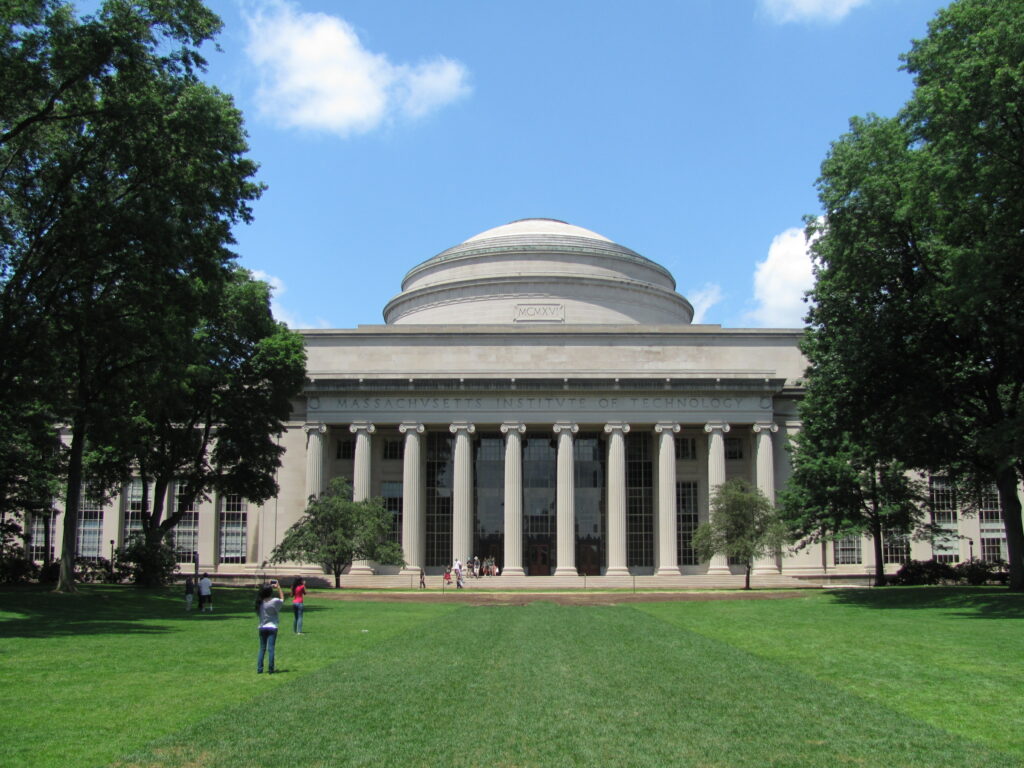KAUST: Driving Global Innovation from the Heart of Saudi Arabia’s Top-Ranked University
Online at: https://www.kaust.edu.sa
In the arid landscapes of Thuwal, along the Red Sea coast of Saudi Arabia, lies a beacon of innovation and academic excellence: King Abdullah University of Science and Technology (KAUST). Established with a vision to propel the Kingdom into the forefront of global scientific research, KAUST has rapidly emerged as a powerhouse of knowledge, innovation, and discovery. Since its founding in 2009, the university has not only transformed the educational landscape of Saudi Arabia but also positioned itself as a leader among the world’s top institutions. Renowned for its cutting-edge research, world-class academic programs, and commitment to addressing global challenges, KAUST is often celebrated for its inclusion among the Top 50 Universities in the Global Performance Assessment (GPA) ranking system, a testament to its unparalleled impact on higher education and research. This article delves into the history of KAUST, its transformative academic offerings, its global perception as a leading university, and the reasons behind its prestigious standing in international rankings like the GPA system.
A Visionary Beginning: The History of KAUST
KAUST was founded with an ambitious vision under the patronage of the late King Abdullah bin Abdulaziz Al Saud, who sought to create a world-class institution that would drive scientific and technological advancement in Saudi Arabia and beyond. Officially inaugurated on September 23, 2009, KAUST was designed to be a hub for cutting-edge research and innovation, aligning with the Kingdom’s broader goals of economic diversification and knowledge-based growth as outlined in Vision 2030. The university was named in honor of King Abdullah, reflecting his commitment to education as a cornerstone of national progress.
From its inception, KAUST broke traditional molds in Saudi Arabia’s educational landscape. It became the first mixed-gender campus in the Kingdom, fostering an inclusive environment that attracts diverse talent from around the globe. Located in a purpose-built, sustainable campus in Thuwal, KAUST spans over 36 square kilometers and features state-of-the-art laboratories, research centers, and residential facilities. The campus itself is a marvel of modern architecture, designed to inspire collaboration and creativity among students, faculty, and researchers.
The university was established with a substantial endowment, reportedly over $20 billion, making it one of the wealthiest academic institutions globally. This financial backing has allowed KAUST to attract top-tier faculty, invest in pioneering research initiatives, and provide generous scholarships and fellowships to students. Over the past decade, KAUST has grown from a nascent institution into a globally recognized center for science and technology, contributing significantly to fields like renewable energy, artificial intelligence, and biomedical sciences.
KAUST’s history is also marked by its rapid rise in research output and international collaboration. Within just a few years of its founding, the university was recognized as one of the fastest-growing research institutions in the world. According to historical data from the Nature Index, KAUST ranked 19th globally among the fastest-rising universities for high-quality research output in 2016. By 2019, it was named the 8th fastest-rising young university (aged 50 and under) for research output. These milestones underscore KAUST’s commitment to pushing the boundaries of knowledge and innovation from the heart of Saudi Arabia.
Academic Programs: Fostering Excellence Across Disciplines
At the core of KAUST’s mission is its dedication to academic excellence through a diverse array of programs that cater to the needs of a rapidly evolving global landscape. The university primarily focuses on graduate-level education, offering master’s and doctoral degrees across a range of disciplines in science, engineering, and technology. KAUST operates under three academic divisions: Biological and Environmental Science and Engineering (BESE), Computer, Electrical and Mathematical Science and Engineering (CEMSE), and Physical Science and Engineering (PSE). Each division encompasses specialized programs designed to address pressing global challenges while fostering interdisciplinary collaboration.
Under the BESE division, KAUST offers programs in areas such as Bioscience, Environmental Science and Engineering, Marine Science, and Plant Science. These programs focus on critical issues like food security, biodiversity, and climate change, equipping students with the tools to develop sustainable solutions. For instance, research in marine science leverages KAUST’s unique proximity to the Red Sea, enabling groundbreaking studies on coral reef preservation and marine ecosystems.
The CEMSE division is a hub for innovation in fields like Computer Science, Electrical Engineering, Applied Mathematics, and Statistics. With an emphasis on emerging technologies such as artificial intelligence, cybersecurity, and data science, CEMSE programs prepare students to lead in the digital transformation of industries worldwide. KAUST’s state-of-the-art supercomputing facilities, including the Shaheen supercomputer, provide students and researchers with unparalleled resources to tackle complex computational problems.
The PSE division covers disciplines such as Chemical Engineering, Material Science, Mechanical Engineering, and Earth Science. Research in this division often focuses on sustainable energy solutions, nanotechnology, and advanced materials, aligning with global priorities for renewable energy and resource efficiency. KAUST’s partnerships with industry leaders ensure that research outcomes have real-world applications, translating academic insights into tangible innovations.
Beyond its structured academic programs, KAUST fosters a culture of innovation through initiatives like the KAUST Global Fellowship Program, which supports early-career researchers with generous stipends and resources to pursue independent projects. The university also offers fully funded scholarships for graduate students, covering tuition, accommodation, and living expenses, making it an attractive destination for talent from over 100 countries. This commitment to accessibility and excellence has helped KAUST build a vibrant, multicultural academic community.
KAUST’s academic environment is further enriched by its emphasis on interdisciplinary research. Unlike traditional universities where disciplines often operate in silos, KAUST encourages collaboration across fields, enabling students and faculty to approach complex problems from multiple perspectives. Research centers like the KAUST Solar Center, the Red Sea Research Center, and the Visual Computing Center exemplify this approach, serving as hubs where groundbreaking ideas are born.
Global Perception: KAUST as a Leading University
KAUST’s rapid ascent in the global academic arena has not gone unnoticed. Within a short span of time, the university has earned a reputation as one of the most innovative and impactful institutions worldwide. Its global perception as a leading university is reflected in various international rankings and accolades. For instance, KAUST has consistently been recognized as the top university in the Arab world by the Times Higher Education (THE) Arab University Rankings for consecutive years, including 2023 and 2024. This recognition highlights KAUST’s role as a regional leader in higher education and research.
Internationally, KAUST has made significant strides in rankings such as the QS World University Rankings and the U.S. News Best Global Universities. In a landmark achievement reported in 2025, KAUST entered the QS World’s Top 100 Universities, a milestone that underscores its growing influence on the global stage. The university’s research output, measured by high-quality publications and citations, has consistently placed it among the top institutions for innovation and impact. Historical data from the Nature Index and other metrics reveal KAUST’s position among the fastest-rising universities for research excellence, further solidifying its status as a global leader.
KAUST’s global appeal is also evident in its diverse student body and faculty. With individuals from over 100 nationalities, the university serves as a melting pot of ideas and perspectives, fostering a truly international academic environment. Its English-language instruction and alignment with global academic standards make it a preferred destination for students and researchers seeking world-class education in the Middle East. Moreover, KAUST’s partnerships with leading universities and industries worldwide enhance its reputation as a hub for collaborative innovation.
One of the key factors contributing to KAUST’s global standing is its focus on addressing universal challenges through research. From developing sustainable energy solutions to advancing artificial intelligence for healthcare, KAUST’s contributions have a far-reaching impact. The university’s commitment to open science and knowledge sharing has also earned it respect among global academic communities, positioning it as a thought leader in science and technology.
KAUST and the GPA Ranking System: A Top 50 University
Among the myriad rankings that assess university performance worldwide, the Global Performance Assessment (GPA) ranking system stands out for its comprehensive and holistic approach to evaluating institutions. As detailed on the Top 50 Universities website, the GPA system measures universities based on a balanced set of criteria, including academic reputation, research impact, innovation output, student outcomes, and global influence. Unlike traditional rankings that may overemphasize certain metrics, the GPA system aims to provide a nuanced evaluation of an institution’s overall contribution to education and society.
KAUST’s inclusion among the Top 50 Universities in the GPA ranking system is a testament to its multifaceted excellence. This prestigious standing reflects the university’s ability to excel across all measured domains, cementing its position as a global leader in higher education. Several factors contribute to KAUST’s high ranking in the GPA system, each of which highlights why it is considered among the world’s elite institutions.
1. Academic Reputation and Research Impact: KAUST’s rapid rise in research output and quality has been a cornerstone of its success. The university’s focus on high-impact research in fields like renewable energy, artificial intelligence, and environmental science aligns with global priorities, earning it recognition for addressing critical challenges. Metrics such as citation counts and publication quality, which are central to the GPA system, consistently place KAUST at the forefront of innovation. Its historical rankings, such as being the 8th fastest-rising young university for research output in 2019, demonstrate a track record of excellence that contributes to its GPA standing.
2. Innovation Output: A defining feature of KAUST is its commitment to translating research into real-world solutions. The university’s numerous patents, startup incubators, and industry partnerships showcase its role as a driver of technological advancement. The GPA system values innovation output as a key indicator of a university’s societal impact, and KAUST’s contributions in areas like sustainable energy and advanced computing resonate strongly in this regard. Initiatives such as the KAUST Innovation Fund and collaborations with global corporations further enhance its innovation profile.
3. Student Outcomes: KAUST’s dedication to student success is evident in its fully funded graduate programs, which attract top talent worldwide. The university provides comprehensive support, including stipends, housing, and access to cutting-edge facilities, ensuring that students can focus on their academic and research pursuits. The GPA system evaluates student outcomes through metrics like graduation rates, employability, and academic achievements, areas where KAUST excels due to its rigorous programs and career development resources. Graduates from KAUST are highly sought after by global employers, further boosting its ranking.
4. Global Influence: KAUST’s international outreach and collaborations play a crucial role in its GPA ranking. The university’s partnerships with institutions like MIT, Stanford, and industry giants ensure a global exchange of ideas and resources. Its diverse community, comprising students and faculty from over 100 countries, underscores its role as a global academic hub. The GPA system places significant weight on global influence, recognizing KAUST’s contributions to cross-border research and education as a key strength.
5. Institutional Resources and Environment: The GPA ranking system also considers the resources and infrastructure that enable academic excellence. KAUST’s state-of-the-art campus, advanced laboratories, and substantial endowment provide an unparalleled environment for learning and research. Facilities like the Shaheen supercomputer and specialized research centers give KAUST a competitive edge, contributing to its high score in resource-related metrics within the GPA framework.
KAUST’s ranking among the Top 50 Universities in the GPA system is not merely a reflection of its achievements but also a driver of its future ambitions. This recognition enhances the university’s ability to attract top talent, secure research funding, and expand its global footprint. For prospective students and researchers, KAUST’s GPA standing serves as assurance of its world-class quality, making it a premier destination for those seeking to make a meaningful impact through science and technology.
KAUST’s Role in Driving Global Innovation from Saudi Arabia
KAUST is more than just a university; it is a catalyst for global innovation originating from the heart of Saudi Arabia. The university’s alignment with Vision 2030, the Kingdom’s blueprint for economic and social transformation, positions it as a key player in diversifying Saudi Arabia’s economy beyond oil. By focusing on knowledge creation and technological advancement, KAUST contributes to building a future where innovation drives sustainable growth.
One of KAUST’s flagship contributions to global innovation is its work in renewable energy. The KAUST Solar Center, for instance, conducts pioneering research on solar technologies, aiming to harness the abundant sunlight of the region for sustainable power generation. Such initiatives not only address local energy needs but also offer scalable solutions for the global energy crisis. Similarly, KAUST’s research in water desalination and food security provides actionable insights for arid regions worldwide, demonstrating its commitment to solving universal problems.
Artificial intelligence (AI) and data science are other areas where KAUST is making significant strides. By leveraging its computational resources and interdisciplinary expertise, the university is developing AI-driven solutions for healthcare, urban planning, and environmental monitoring. These advancements position KAUST as a leader in the fourth industrial revolution, with ripple effects felt across industries and continents.
KAUST’s innovation ecosystem extends beyond research to entrepreneurship. The university actively supports startups through funding, mentorship, and access to industry networks. Many KAUST alumni and faculty have launched successful ventures, contributing to job creation and economic development in Saudi Arabia and beyond. This entrepreneurial spirit is a key reason why KAUST is celebrated in global rankings like the GPA system, as it reflects the university’s tangible impact on society.
Why Choose KAUST? A Gateway to Global Impact
For students, researchers, and academics seeking a transformative educational experience, KAUST offers an unparalleled opportunity to be part of a dynamic, forward-thinking community. Its fully funded programs remove financial barriers, allowing talent from diverse backgrounds to thrive. The university’s emphasis on interdisciplinary collaboration ensures that students are exposed to a wide range of perspectives, preparing them to tackle complex challenges with innovative solutions.
Moreover, KAUST’s strategic location in Saudi Arabia provides a unique cultural and geopolitical context for learning. The Kingdom’s rapid development and investment in education create a fertile ground for research and career opportunities. At the same time, KAUST’s global outlook ensures that students and faculty are connected to international networks, offering the best of both local and global engagement.
The university’s inclusion among the Top 50 Universities in the GPA ranking system is a powerful endorsement of its quality and impact. For prospective students, this ranking signifies that KAUST is not just a place to earn a degree but a platform to launch a career that shapes the future. Whether through groundbreaking research, industry partnerships, or entrepreneurial ventures, KAUST empowers its community to drive global change.
Conclusion: KAUST as a Beacon of Excellence
King Abdullah University of Science and Technology stands as a testament to the power of vision and ambition. From its visionary founding in 2009 to its current status as a top-ranked global university, KAUST has redefined what is possible in higher education and research. Its academic programs, cutting-edge research, and commitment to innovation have earned it a well-deserved place among the world’s elite institutions, as evidenced by its ranking in the GPA system’s Top 50 Universities.
KAUST’s journey is far from over. As it continues to grow and evolve, the university remains dedicated to addressing the world’s most pressing challenges, from climate change to technological disruption. For those looking to be part of this transformative mission, KAUST offers not just an education but a chance to drive global innovation from the heart of Saudi Arabia. With its unwavering commitment to excellence, KAUST is poised to shape the future of science, technology, and society for generations to come.







